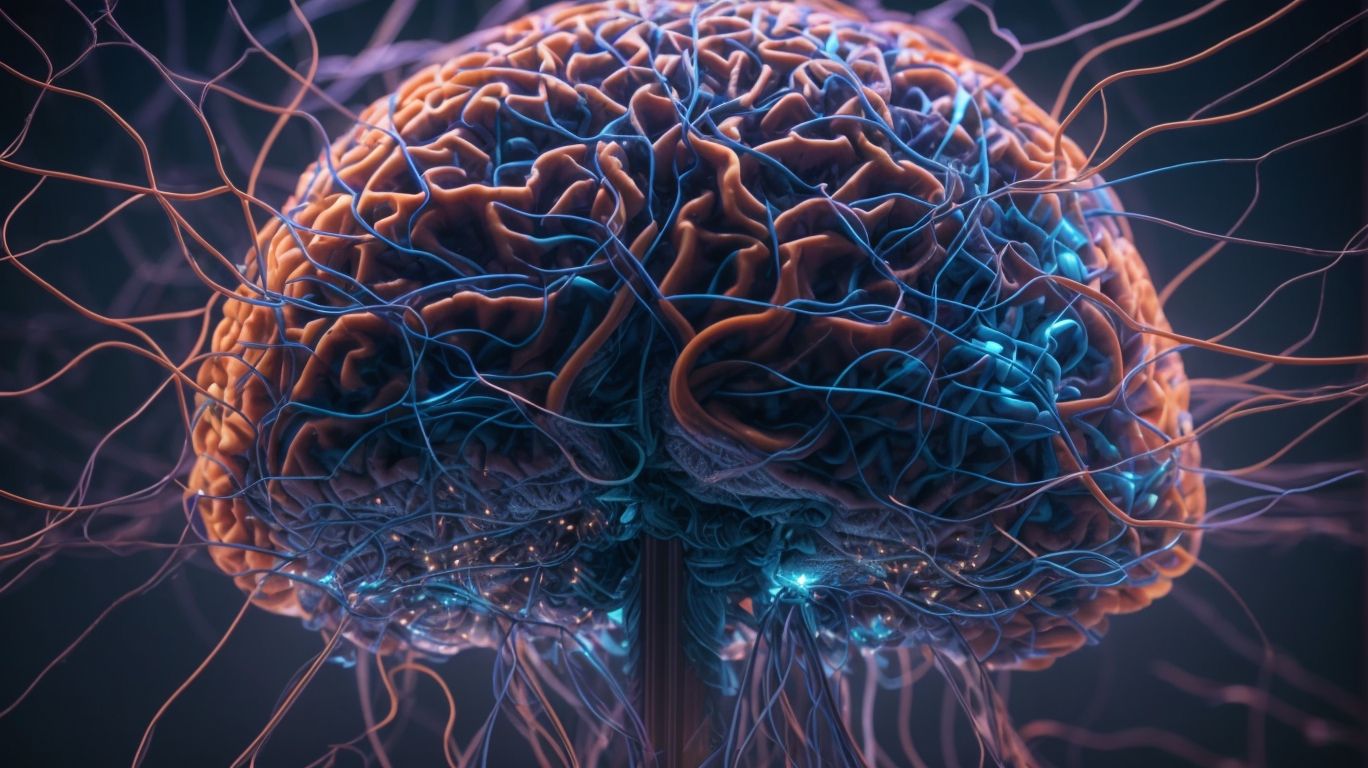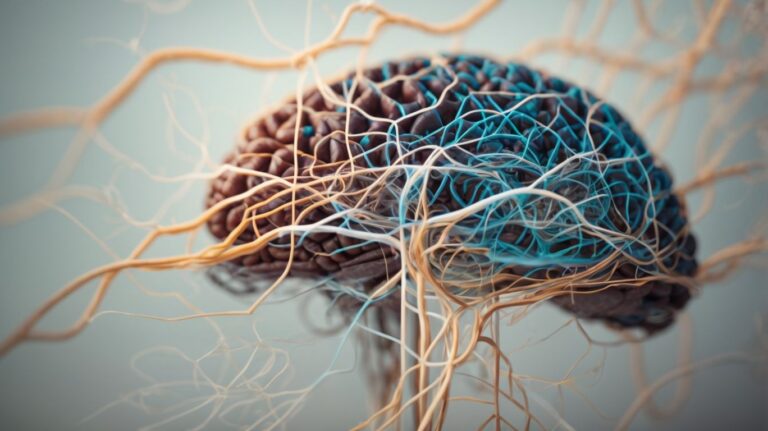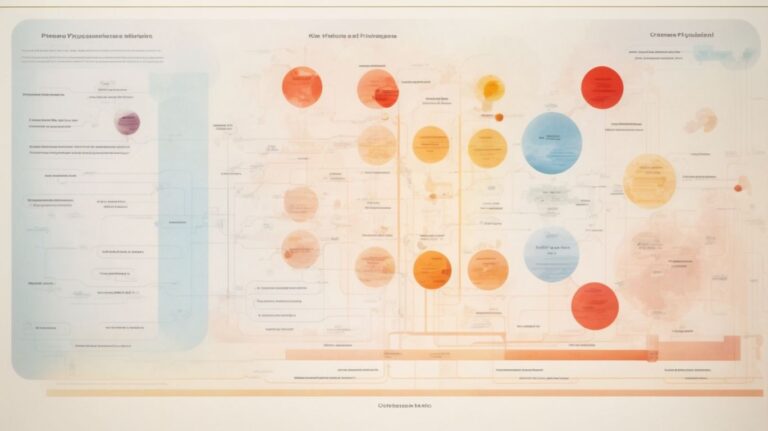Biological psychology, also known as biopsychology or psychobiology, is a fascinating field that explores the intricate relationship between the brain, behavior, and mental processes. By understanding the biological basis of human behavior, researchers can uncover valuable insights into mental disorders, develop effective treatments, and advance our knowledge of the human brain.
In this article, we will delve into the key topics in biological psychology and explore how studying this field can benefit various fields such as psychology, medicine, education, and research. Let’s uncover the importance and relevance of biological psychology in today’s world.
Contents
- 1 What is Biological Psychology?
- 2 Why is Studying Biological Psychology Important?
- 3 What Are the Key Topics in Biological Psychology?
- 4 How Can Studying Biological Psychology Benefit Different Fields?
- 5 Frequently Asked Questions
- 5.1 What is the importance of studying biological psychology?
- 5.2 How does studying biological psychology benefit us?
- 5.3 Is studying biological psychology only relevant for those pursuing a career in psychology?
- 5.4 Can studying biological psychology help us understand our own behavior?
- 5.5 How does studying biological psychology contribute to scientific research?
- 5.6 Is there a growing demand for professionals with knowledge of biological psychology?
What is Biological Psychology?
Biological psychology, also known as biopsychology or psychobiology, is the scientific study of the biological bases of behavior and mental processes.
It focuses on understanding how biological mechanisms, such as genetics, neuroscience, neurotransmitters, and evolutionary perspectives, influence psychological phenomena.
Researchers in biological psychology investigate how the brain and nervous system impact behavior, emotions, and cognitive functions.
By examining genetic predispositions, neural pathways, and the role of neurotransmitters like serotonin and dopamine, biopsychologists aim to uncover the intricate connections between biology and psychological experiences.
Why is Studying Biological Psychology Important?
Studying biological psychology is essential for gaining insights into the intricate relationship between biological factors and human behavior.
One of the cornerstone concepts within this field is the understanding of neurotransmitters, which are chemical messengers responsible for communication within the brain. These molecules play a crucial role in shaping various aspects of cognition, mood, and behavior.
Exploring the influence of genetics on behavior offers valuable insights into how certain traits and predispositions are passed down through generations.
Delving into the realm of neuroscience sheds light on the intricate neural pathways that underlie consciousness, emotions, and decision-making processes. By examining how different regions of the brain interact and respond to stimuli, researchers can unravel the complex mechanism behind human behavior.
Understanding the Brain and Behavior
Understanding the complex interplay between the brain and behavior forms the cornerstone of biological psychology.
Through genetics, researchers have uncovered the hereditary factors that influence brain development and predispositions towards certain behaviors. Advancements in neuroscience have allowed for a deeper understanding of how different brain structures, such as the amygdala and prefrontal cortex, play crucial roles in regulating emotions and decision-making processes. The intricate biological processes within the brain, including neurotransmission and synaptic plasticity, further highlight the complexity of cognitive functions and their link to behavior.
Identifying the Biological Basis of Mental Disorders
Identifying the biological roots of mental disorders is crucial in the field of biological psychology to develop effective interventions and treatments.
This exploration into the neurotransmitter imbalances that potentially contribute to mental health conditions is essential for understanding the intricate mechanisms of the brain.
By looking into the biological processes that underlie these disorders, researchers can gain valuable insights into how to target specific pathways for treatment.
Uncovering genetic predispositions related to mental health can help in early detection and personalized medicine approaches, improving outcomes for individuals suffering from such conditions.
Developing Effective Treatments for Mental Health Issues
In biological psychology, the development of effective treatments for mental health issues relies on a deep understanding of neurogenesis, neurotransmitter systems, and cutting-edge research.
Neurogenesis, the process of generating new neurons in the brain, has been a focal point in exploring potential therapies for various psychological disorders. By harnessing the brain’s ability to create new neural connections, researchers are uncovering innovative approaches to treat conditions such as depression, anxiety, and cognitive impairments.
The modulation of neurotransmitter systems plays a crucial role in shaping the landscape of mental health treatments. By targeting specific neurotransmitters like serotonin, dopamine, and GABA, scientists have been able to develop medications that address imbalances in these signaling molecules, offering relief to individuals struggling with psychiatric disorders.
Ongoing research in biological psychology continues to unveil promising findings that pave the way for novel therapeutic interventions. Studies exploring the impact of environmental factors on brain health, the role of genetics in mental illnesses, and the efficacy of personalized treatment strategies are shaping the future of mental health care.
Exploring the Connection between Biology and Behavior
Exploring the intricate connection between biological factors, behaviorism, introspective analysis, and the nature vs nurture debate is a fundamental aspect of biological psychology.
In the realm of biological psychology, understanding how genetics and environmental factors intertwine to shape human behavior is a complex puzzle that researchers have been unraveling for decades. The roots of this investigation can be traced back to the historical philosophical debates on determinism versus free will, which laid the foundation for modern theories of behaviorism and introspection.
- Behaviorism, championed by psychologists such as B.F. Skinner and John B. Watson, focuses on observable behaviors as a result of conditioning and reinforcement, downplaying internal mental processes.
- On the other hand, proponents of introspective analysis, like Wilhelm Wundt, emphasized the importance of subjective experience and internal thoughts in understanding behavior.
Advancing our Knowledge of the Human Brain
Advancing our understanding of the human brain through biological psychology contributes to the exploration of consciousness, evolutionary adaptations, and emotional responses.
Studies in biological psychology delve deep into the intricate mechanisms of the brain, shedding light on how neural processes underlie our awareness and perception. By analyzing brain structures and functions in the context of evolution, researchers can uncover the adaptive advantages that certain cognitive processes confer. Evolutionary theories offer valuable insights into how behaviors and mental faculties have developed over time to increase our chances of survival. The neurobiological basis of emotions unravels the intricate interplay between neurotransmitters, brain regions, and psychological states, illuminating the underlying processes that drive our emotional reactions.
What Are the Key Topics in Biological Psychology?
Biological psychology encompasses various key topics that include genetics and behavior, neurotransmitters and neurochemistry, brain structure and function, hormones and behavior, and evolutionary psychology.
Genetics play a fundamental role in shaping an individual’s behavior, with genes influencing a wide array of psychological traits and tendencies.
Neurotransmitters and neurochemistry are crucial components of the brain’s communication system, regulating mood, cognition, and various behaviors.
The intricate brain structure and its functions, such as the limbic system and cerebral cortex, are essential in understanding complex behaviors and cognitive processes.
Hormones are powerful chemical messengers that impact behavior, emotions, and physiological responses within the body.
Evolutionary psychology delves into how behaviors and psychological traits have evolved over time to enhance survival and reproductive success.
Genetics and Behavior
Genetics plays a pivotal role in shaping behavior, and the exploration of genetic influences on behavior is a critical domain within biological psychology.
Studies have shown that various behaviors, from personality traits to mental health conditions, have genetic components that contribute to their development. Heritability estimates, obtained through twin and adoption studies, indicate the extent to which genetic factors influence individual differences in behavior. Research on gene-environment interactions reveals how genetic predispositions can interact with environmental factors to influence behavior. This intricate interplay between genes and the environment underscores the complexity of understanding behavior and the ongoing debate on the relative contributions of nature versus nurture.
Neurotransmitters and Neurochemistry
Neurotransmitters and neurochemistry are central to understanding mental health, behavior, and cognitive functions in the realm of biological psychology.
In the intricate web of the brain’s communication system, neurotransmitters play a pivotal role as chemical messengers that transmit signals across synapses. These chemicals not only regulate mood, emotions, and stress responses but also impact memory, attention, and learning processes.
Imbalances in neurotransmitter levels, such as serotonin, dopamine, and norepinephrine, have been linked to various mental health disorders like depression, anxiety, and schizophrenia. Research on neurotransmitter systems continues to unveil the complexities of these mechanisms, offering potential insights for therapeutic interventions.
Brain Structure and Function
Exploring the intricacies of brain structure and function is crucial in unraveling the mysteries of cognitive processes and psychological phenomena within biological psychology.
Within the brain, various regions play distinct roles in cognitive functions. The frontal lobe, for instance, is associated with decision-making and reasoning, while the temporal lobe is vital for memory and language processing. Neural pathways within the brain enable communication between these regions, facilitating complex cognitive tasks. Understanding the interconnections between these brain regions is fundamental in cognitive psychology, shedding light on how information is processed, memories are formed, and behaviors are regulated. These insights contribute to a deeper comprehension of human cognition and behavior.
Hormones and Behavior
The influence of hormones on behavior and genetic predispositions underscores the importance of studying hormonal regulation in biological psychology.
Hormones, such as testosterone and estrogen, play a significant role in shaping both behavior and cognitive processes. These chemical messengers are produced by various glands throughout the body, with the endocrine system serving as the primary regulator.
Genetic factors strongly influence the production and release of hormones, impacting an individual’s predisposition to specific behaviors. Research in this area has revealed correlations between hormonal imbalances and psychological disorders, offering insights into potential treatment modalities and interventions.
Evolutionary Psychology
Evolutionary psychology delves into the adaptive functions of behavior, the evolutionary roots of emotions, and the ongoing debate of nature vs nurture within the realm of biological psychology.
The study of human behavior through an evolutionary lens sheds light on how complex behavioral traits have developed over time to enhance the survival and reproduction of individuals. Understanding emotions such as fear, anger, pleasure, and empathy from an evolutionary perspective offers insights into how these emotional responses provided adaptive advantages in different ancestral environments. Evolutionary psychologists argue that while genetic predispositions influence behavior, environmental factors also play a crucial role in shaping human traits, contributing to the continuous nature versus nurture discourse in psychology.
How Can Studying Biological Psychology Benefit Different Fields?
Studying biological psychology offers multifaceted benefits across diverse fields such as psychology, medicine, healthcare, education, research, and technology.
Biological psychology plays a fundamental role in understanding the intricate connections between brain functions and behavior, which is crucial not only in psychology but also in various healthcare practices.
For instance, in the field of medicine, insights from biological psychology aid in diagnosing and treating mental health disorders, neurological conditions, and cognitive impairments.
Educational strategies benefit from incorporating biological psychology principles to enhance learning outcomes and tailor interventions to individual cognitive processes.
In research, the integration of biological psychology has paved the way for innovative studies exploring the neuronal mechanisms underlying complex behaviors.
Technological innovations have been fueled by advancements in biological psychology, leading to the development of sophisticated brain imaging techniques and neurofeedback tools.
Psychology
In the realm of psychology, the insights from biological perspectives shape the understanding of behaviorism, introspection, cognitive processes, and research methodologies.
Behaviorism, which focuses on observable behaviors and the impact of conditioning on human actions, is influenced by biological factors such as genetics and neurochemistry. These underlying biological mechanisms play a crucial role in shaping behaviorist theories and the ways in which behavior is studied and modified.
Similarly, introspective analysis, with its emphasis on examining internal thoughts and emotions, is also interconnected with biological psychology. The neurological processes that govern perception, memory, and self-awareness provide a foundation for understanding how individuals reflect on their own mental experiences.
Cognitive perspectives in psychology, which explore mental processes such as problem-solving and decision-making, are greatly informed by advancements in neuroscience and the study of brain functioning. The biological basis of cognitive functions helps elucidate how mental processes are intricately linked to neural activity and structure.
Medicine and Healthcare
Biological psychology contributes significantly to the fields of medicine and healthcare by informing treatments for mental health disorders, understanding neurological conditions, and exploring genetic influences on health.
By looking into the intricate relationship between the brain and behavior, biological psychology offers valuable insights that aid healthcare providers in crafting personalized interventions for individuals battling with various psychiatric conditions. This branch of psychology plays a pivotal role in unraveling the underlying mechanisms of neurological diseases, paving the way for cutting-edge research and innovative treatment modalities.
In the realm of genetic counseling, understanding how genes interact with behavior and environment can revolutionize the way hereditary health risks are assessed and managed, leading to more targeted and effective healthcare strategies.
Education
In the realm of education, insights from biological psychology inform pedagogical practices, learning strategies, and research-based approaches to cognitive development.
Biological psychology, also known as biopsychology or psychobiology, plays a crucial role in understanding how the brain functions, processes information, and interacts with the environment. By integrating principles of neuroscience and psychology, educators can tailor teaching methodologies to align with the natural cognitive processes of students.
For instance, knowledge of brain plasticity and neural pathways can influence instructional techniques to enhance memory retention and critical thinking skills. Understanding how neurotransmitters and hormones impact mood and motivation can aid in creating supportive learning environments that promote student engagement and emotional well-being.
Incorporating findings from cognitive development research grounded in biological psychology can provide valuable insights into optimal learning timelines, cognitive milestones, and effective interventions for individuals with learning differences or disabilities.
Research and Technology
The integration of biological psychology with research and technology drives innovations in neuroscience, cognitive enhancements, and the development of advanced tools for studying brain-behavior relationships.
Biological psychology plays a crucial role in shaping research methodologies by providing insights into the biological underpinnings of various mental processes. This integration allows researchers to explore intricate brain functions through advanced imaging techniques such as fMRI and EEG, providing a deeper understanding of the mind-body connection. In the realm of technological advancements, the fusion of biology with psychology has led to the creation of sophisticated neurofeedback systems that enhance cognitive performance and treat neurological disorders. The interdisciplinary approach between biology and psychology has catalyzed the development of cutting-edge tools like optogenetics, enabling precise manipulation of neural activity for studying behavior patterns.
Frequently Asked Questions
What is the importance of studying biological psychology?
Studying biological psychology is crucial in understanding how the brain and body work together to influence behavior, thoughts, and emotions.
How does studying biological psychology benefit us?
By studying biological psychology, we can gain insights into the causes and treatments of mental health disorders, as well as ways to improve overall well-being.
Is studying biological psychology only relevant for those pursuing a career in psychology?
No, the principles of biological psychology can be applied to various fields such as medicine, education, and business, making it a valuable subject for anyone to study.
Can studying biological psychology help us understand our own behavior?
Yes, understanding the biological basis of behavior can help us become more self-aware and make conscious efforts to improve our thoughts and actions.
How does studying biological psychology contribute to scientific research?
The study of biological psychology provides a foundation for conducting research on topics such as brain function, genetics, and the effects of various substances on the brain and behavior.
Is there a growing demand for professionals with knowledge of biological psychology?
Yes, with the increasing focus on mental health and advances in technology, there is a growing need for individuals with a strong understanding of biological psychology in various professions, including psychology, medicine, and research.




